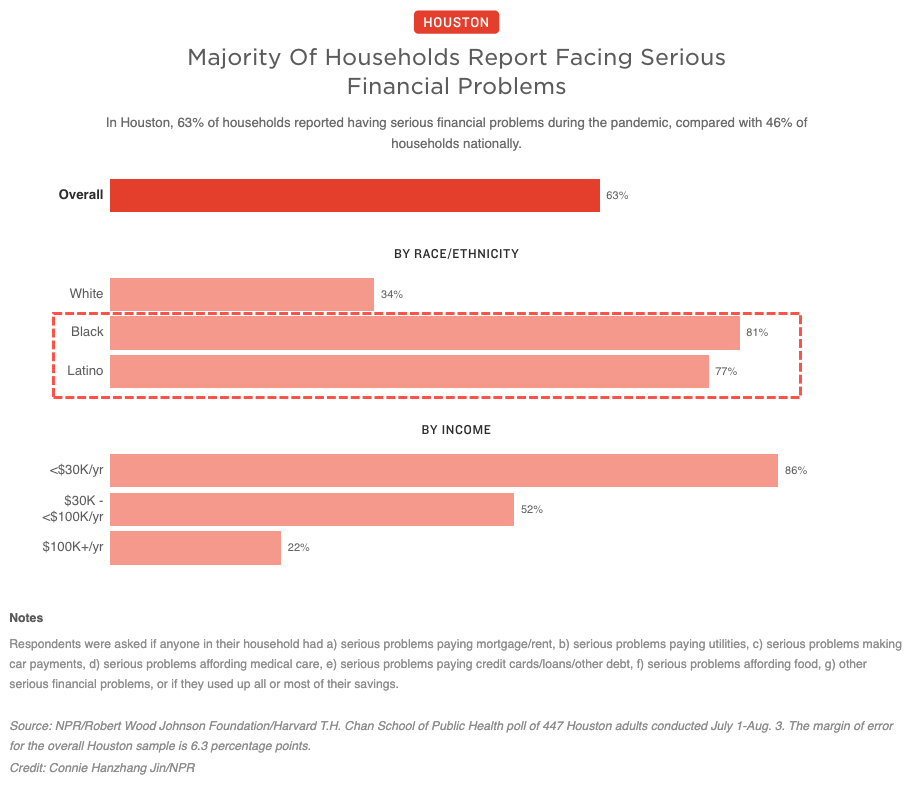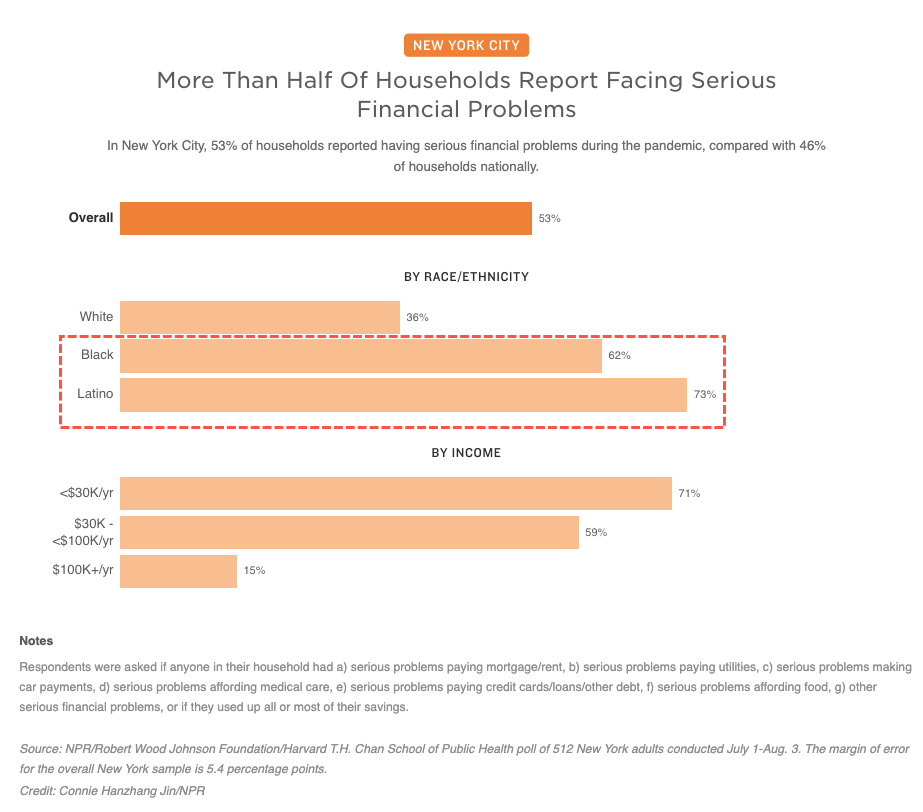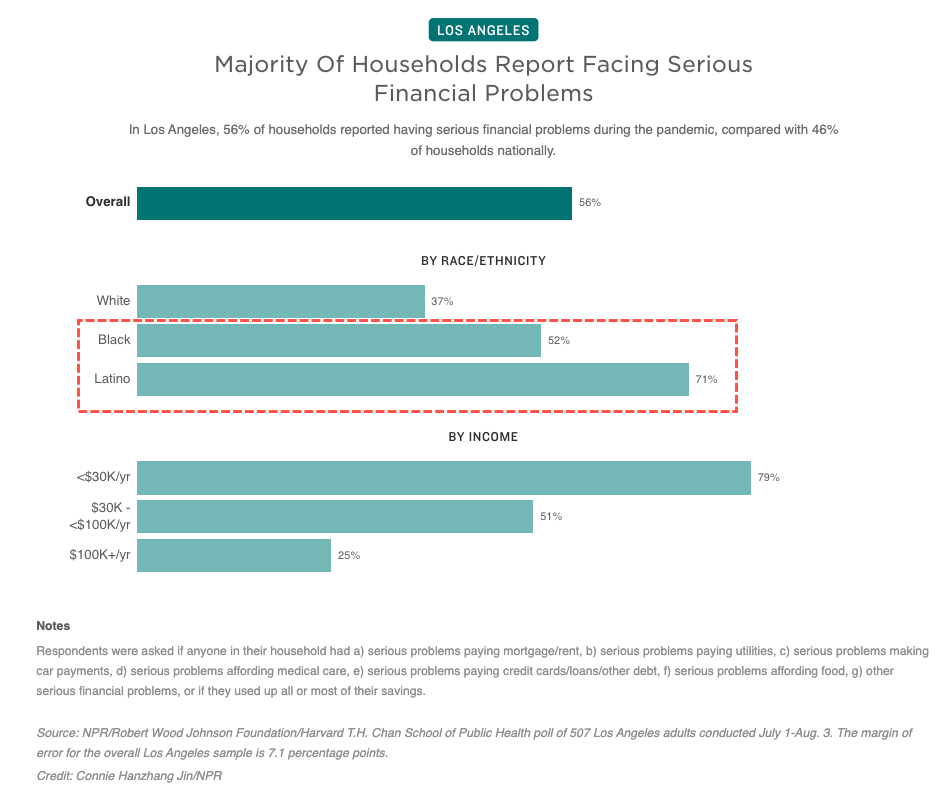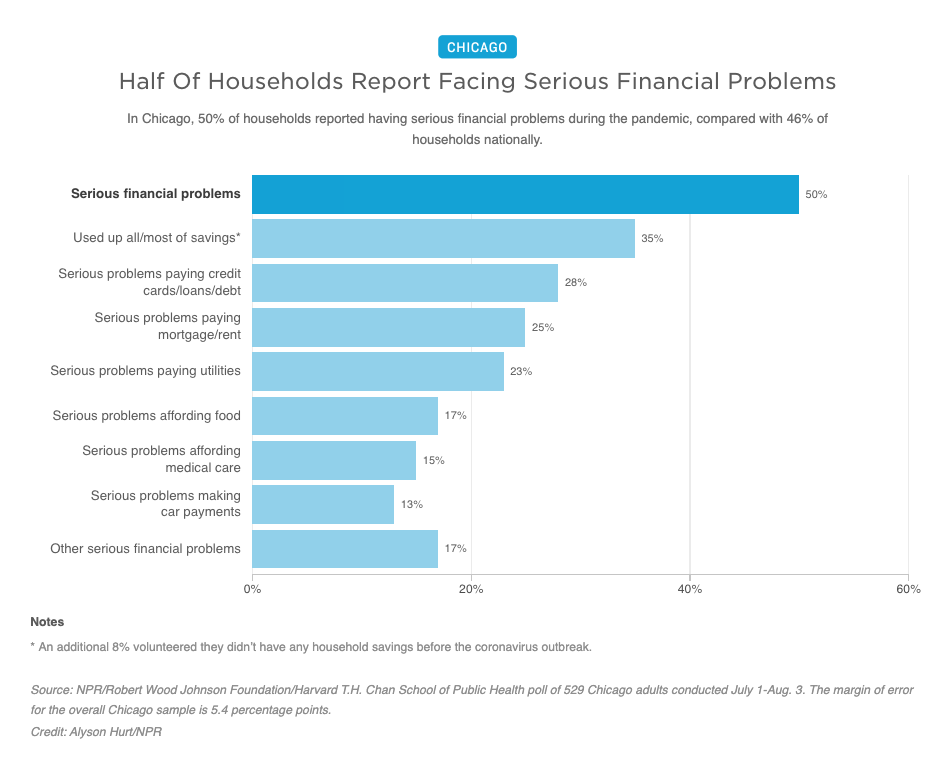COVID Financial Pain ‘Much, Much Worse’ Than Expected, Warns Harvard Study
Tyler Durden
Thu, 09/10/2020 – 21:40
New findings from a survey by the Robert Wood Johnson Foundation and the Harvard T.H. Chan School of Public Health, published by NPR News on Wednesday, reveal low-income minority households have experienced the most financial hardships in the virus-induced recession.
The pandemic heavily impacted Black and Latino households across America’s four largest cities (New York, Los Angeles, Chicago, and Houston) with massive job loss or reduction in hourly wages or a decline in working hours.
The survey, conducted from July 1 through Aug. 3, found Latino households (77%) and Black households (81%) in the Greater Houston area incurred “serious” financial problems.
Houston
As for the three other major cities, the survey showed 73% of Latinos in New York City experienced severe financial hardships, 71% of Latinos in Los Angeles, and 63% in Chicago. Black households in New York City (62%), Los Angeles (52%), and Chicago (69%) also reported severe financial distress because of the downturn.
New York City
Los Angeles
Chicago
The survey found a majority of low-income minority households had their savings wiped out, which is similar to our recent report detailing how tens of millions of Americans depleted emergency savings this year.
Nationally, white households and ones that have incomes over $100,000 escaped much of the financial distress. But for low-income minorities, which mostly survived on direct transfer payments from the government (i.e., Trump stimulus checks), the exhaustion of the checks has caused more financial stress ahead of the presidential election in November.
“Before federal coronavirus support programs even expired, we find millions of people with severe problems with their finances,” said Robert Blendon, a poll co-director and executive director of the Harvard Opinion Research Program at the Harvard Chan School. “And it’s going to get worse because there is nothing for the people we surveyed who earn under $100,000 a year to fall back on.”
Blendon said the downturn has produced substantial economic damage among low-income minority households.
He warned: “This is much, much, much worse than I would’ve predicted.”
“This is what I would expect without a national emergency relief bill,” Blendon said. “We had a $2 trillion relief bill to lift people up and put a pillow under them. But it is not helping nearly as many people as we had expected.”
If readers have been counting, the dangerous fiscal cliff has been underway in the US for 39 days, one where tens of millions of Americans are no longer receiving weekly stimulus checks of $600.
With the economic recovery stalling and the labor market deteriorating, much of the financial distress, due to the virus pandemic, has been exerted onto the working poor.
This is just more bad news for an economy that is 70% based on consumption…



